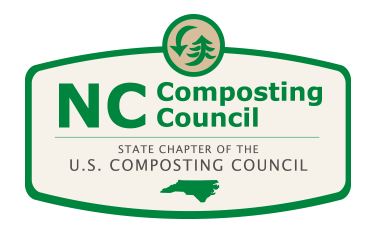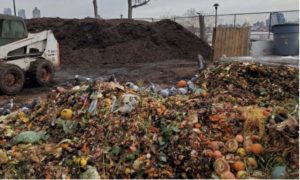Cultivating Organic Matter through the Promotion Of Sustainable Techniques Act
The C.O.M.P.O.S.T Act
HB 4443 and SB 2388
A very important piece of national legislation is on the table right now that we think you should be aware of and that you can help with. The COMPOST Act is meant to do two things:
1. Keep compostable materials like food waste out of the landfill where they generate methane,
and
2. Create avenues for nutrient-rich compost to go onto the land to enrich soil and draw down carbon.
Above photo is from Civil Eats. Click HERE to read the article about community compost sites in NYC.
***********************
from the
US Composting Infrastructure Coalition (USCIC)
https://compostinfrastructure.com/take-action
COMPOST Act establishes a USDA-led grant and loan guarantee program to provide $200 million in funding annually over 10 years for a range of composting facilities and programs.
Grants
• Total amount of grant funds cannot be less than 25% nor exceed 75% of the cost of the project
• Total amount of grant funds awarded for a project cannot exceed $5 million • At least $50 million each year will be allocated to projects without centralized commercial composting
• Eligible entities:
o State, local, or tribal government
o Elementary, secondary or higher education institutions
o Non-profit organizations
o Farmers and ranchers
o Any of the above in coordination with a for-profit organization
Loan Guarantees
• Total loan amount cannot exceed 80% of the project cost
• Total loan amount cannot exceed $5 million
• Eligible entities are for-profit organizations, farmers, or ranchers that demonstrate successful prior experience developing, managing, and marketing composting facilities

Eligible Projects
• Composting facility or site permitting, planning, and construction
• Acquisition of machinery, equipment, and other physical necessities required to operate a composting facility, system, or program, except depackaging equipment.
• Activities to increase the production capacity throughput of a composting facility
• Implementation of onsite composting systems and programs (such as home composting programs, community garden and urban farm composting, and other onsite composting systems at institutions, nonprofits, and businesses).
• Collection of organic waste intended for processing at a composting facility or system, or through a composting program, including curbside pick-up programs, community drop-off programs, and facility- or event-specific programs (such as programs at schools, restaurants, stadiums, or festivals).
• Activities for land-based compost application, including compost application on a farm or ranch.
• Market development projects that create a demand for compost product or increase commercial and residential participation in composting.
Project Requirements
• Result in composting of food waste
• Result in increased total capacity to accept and process food waste into finished compost product.
• Ensure land-based compost application activities are consistent with any applicable requirements pursuant to section 1241(j) of the Food Security Act of 1985.
Priority Factors
• The project is located in/or serving a location with significant access to food waste
• The project demonstrates the potential to create new capacity for the volume or weight of food waste collected and processed, or make significant gains in the number of people with access to food waste composting facilities or systems.
• The project includes a demonstrated plan for following best management practices and producing a high-quality compost product.
• The project incorporates the participation of small and diverse businesses (such as minority-, woman-, and veteran-owned businesses certified by the Small Business Administration or under a State program or another recognized certification program and other businesses led by Black people, Indigenous people, or other people of color).
• The project is for a facility or system that accepts or plans to accept and process only source separated organics.

COMPOST AS A FARM CONSERVATION PRACTICE
The COMPOST Act also adds compost to other conservation practices (cover crops, no-till etc). As part of the USDA/NRCS EQIP Program (Environmental Quality Incentives Program)
This effectively would make use of compost on farmland eligible for conservation practice funding under the program due to its soil health and carbon sequestration benefits.
Read the whole thing –
COMPOST Act: https://www.congress.gov/bill/117th-congress/house-bill/4443/text
|
|
|
![]()










